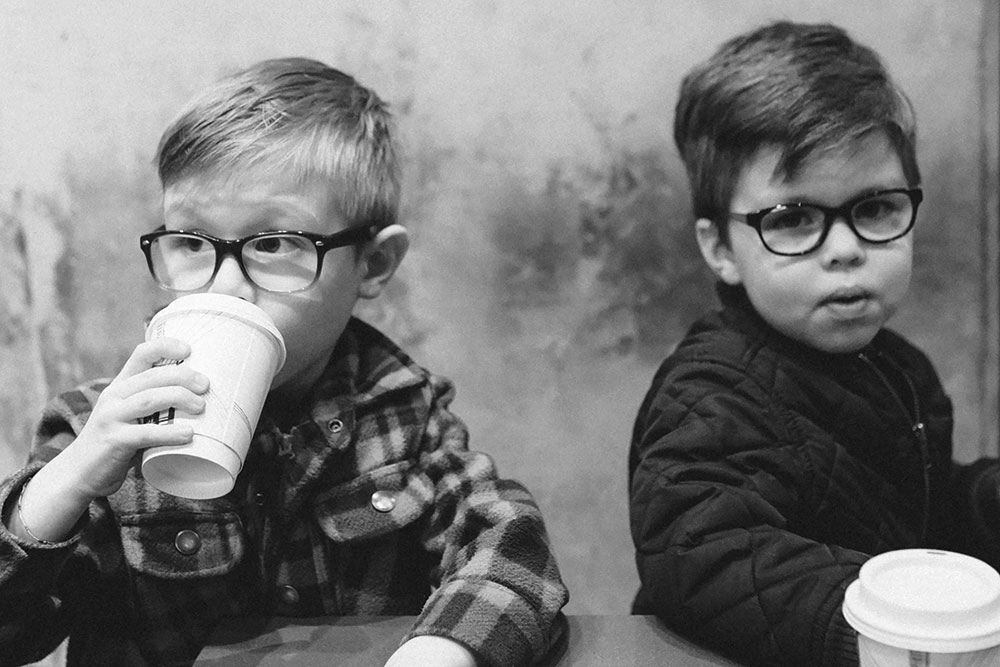How important are sibling relationships?

Psychotherapy has traditionally focused most of its attention on the role parents play in the life of a child, and the impact of those relationships on an adult’s capacity to form healthy, meaningful bonds.
However, I have found throughout years of psychotherapeutic clinical practice, that many of my clients reveal a hidden and sometimes more influential tie that affects their adult relational worlds – their siblings.
EARLY BLUEPRINTS
Some of you may be familiar with the concept of attachment theory, which explores our bonding style by investigating the primary nature of the parental attachments we grew up with. Similarly, object relations theory describes the way we internalise our caretakers when we are children, and the way those ‘internalised parents’ continue to exert a psychological influence over us as adults. These models suggest parental relationships form a blueprint for how we relate to ourselves, others and the world.
I think it is also vital to explore how our sibling relationships, or our status as an only child, affected our psychological blueprint. Siblings, after all, can be our most significant peers, before school friends start leaving their mark.
How we are treated in the tribal hierarchy of family life has a serious impact on how we relate to our contemporaries, work environments, romantic relationships and the family life we later create for ourselves as adults. As children, we notice discrepancies in the way our parents love and nurture our siblings in comparison to the way they love us. These differences form our core beliefs around our worthiness.
For example, if we felt we were loved less than a sibling, we may conclude we are not lovable enough, and this theme could repeat itself in future relationships, sometimes evidencing as triangles that we endlessly find ourselves in, where someone else is always chosen over us.
Despite this being a challenging blueprint, I have seen clients utilise this early family experience as motivation to achieve the things they want in life.
Never assuming they are entitled to the acknowledgment they deserve, they work hard and cope with knockbacks that might have crushed those with an inherent sense of entitlement.
Conversely, I have had clients who have enjoyed incredibly close relationships with their siblings, which can create a powerful bond of mutual support, a feeling of facing the world together and confiding in one another, sometimes to the exclusion of the parents.
While this can establish a wonderful framework for trusting others, it can also prove a hard act to follow for future partners, whose capacity for deep intimacy and support might not match that of the sibling relationship. Here, the client must acknowledge that romantic partnerships may not reflect the intensity of such a lifelong attachment.
MULTIPLE BIRTHS AND ABUSE
Such closeness can also be experienced by siblings who are twins, triplets, quads, and so on. Those who are linked in this way often carry a feeling that their identity is inexorably connected to their siblings.
Because of this, twins might have to work harder to develop their own separate sense of self, and this may involve taking up different friends and interests as children, and carving contrasting careers as adults.
If twins don’t form their own identities, they run the risk of having unconsciously merged relationships with others, tending to remain undeveloped in their own potential and, instead, being what others need them to be.
Occasionally clients report violent, destructive or emotionally abusive sibling relationships, which went unnoticed by parents.
This can create the belief that the world is unsafe and also that they, as the unprotected victim, were not important enough to be shielded from attack.
The pain from this can be far more significant than typical ‘sibling rivalry’. In some instances, a sibling may start off by trying to smother a newborn baby with a pillow while their mother’s back is turned. This might progress to regular beatings, emotional threats, scapegoating and even sexual abuse.
We do not like to think so much darkness exists between children but, in fact, it is in children’s nature to express the primitive parts of their psyches with each other, particularly in the private and often unregulated environment of a busy home life.
However, I have also witnessed a tremendous resilience within people with this type of history, who are often real survivors, and can learn to move away from being the ‘secret keepers’ to becoming advocates for speaking out and confronting difficult truths.
THE ONLY CHILD
Far from being used to having things their own way, those who grew up as only children tend to be emotionally intelligent, as they had to develop more sophisticated conversation and behaviour from a young age. They can also be creative types, as periods of having to entertain themselves helped to establish a strong imaginal world.
Their challenges usually come when learning how to manage peer groups once they get to school, and parents have a vital role to play in helping them understand the social nature of group interactions. These days, blended families are also far more prevalent, and, therefore, step-siblings join the melting pot of how we formulate our blueprints, not just in childhood, but during our teenage years and beyond. This ongoing flux in family dynamic can interrupt and influence our developing sense of self, and where we fit in the world.
NATURE OR NURTURE?
The varying personalities of children within one family unit might be partly down to genetics, but there is no doubt it is the particular relationships that siblings form with one another and with their adult family members that formulate a child into the individual they’ll become.
Although birth order – that’s whether a person is first-born, a middle child or the youngest – has become a favourite focus of interest for therapists, I’ve found it is the idiosyncratic nature of the sibling experience that matters most, and this rarely adheres to generalisations.
What makes every child unique is the meaning they make of their experience, which forms the belief systems that come to form patterns in our adult lives.
Perhaps this is why siblings can report such different versions of the same family, and why they can vary so much in their personalities and way of relating.
Within one family there are thousands of tiny differences in experience each child has, and they all coalesce into a unique and deeply personalised sense of self, and the wider world.
For more information on Stacey, visit northlondonpsychotherapist.com












